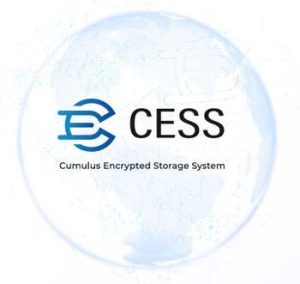Decentralized Object Storage Service from Cumulus Encrypted Storage System
Service will bring decentralization and scalability to OSS critical component of tech industry.
This is a Press Release edited by StorageNewsletter.com on December 23, 2022 at 2:01 pmCumulus Encrypted Storage System (CESS) has completed the development of its Decentralized Object Storage Service (DeOSS).
The service was completed on November 14, 2022 and was launched on the company’s cloud storage data network V0.5.3 testnet. This made it the 1st decentralized storage network to launch decentralized object storage services.
Understanding object storage services
Object storage allows users to dynamically process and analyze stored unstructured data, rather than just static or structured data.
Object storage technology stores and manages data in an unstructured format known as objects. Organizations today create, store, and subsequently analyze vast volumes of unstructured data. This includes everything from photos, videos, and audio files to emails, web pages, and sensor data. Centralized cloud object storage systems are used to distribute this data across multiple physical devices, thereby allowing users to access the data they need efficiently from a single, virtually hosted server. In this way, object storage technology helps organizations build cloud-native applications that have the scale, flexibility, backups, and access needed to power innovation, analytics, and decision-making.
Unfortunately, today’s Object Storage Services such as Google Cloud and Amazon Web Services are centralized. They deliver many of the benefits that users want and need, but the platforms ultimately control the data stored therein. This conflicts with the decentralization and owner-owned-and-controlled tenets of Web3 and blockchain.
About CESS’s DeOSS
What the company has done it brought the scalability, user-friendly operation, and cost-efficiency of traditional OSSs to users via a decentralized offering.
As a decentralized cloud storage network for online storage and real-time sharing that is dedicated to providing a decentralized full-stack solution for Web3 high-frequency dynamic data storage, the firm allows users to freely share and trade any valuable data on the CESS network while retaining ownership of that data. In this way, it is helping to build a prosperous, diverse, and secure data economic ecosystem. With the DeOSS offering in place, it has created an interface and on-ramp for users to migrate from Web2 services such as Google Cloud and AWS to CESS’s DeOSS since the platform integrates with existing AWS and Google Cloud if the user chooses to do so.
Jessie Dai, co-founder, CESS, talked about the development: “CESS is dedicated to driving value creation and delivering on the user-focused promise of fast, performant, cost-effective and secure Web3 applications that are stored on CESS’s next-generation decentralized cloud storage protocol. By adding decentralized OSS services to our platform, we are making steady inroads into the most high-value services and offerings of incumbent enterprises such as AWS and Google Cloud – but doing so by providing users with the decentralization and ownership they deserve.”
The firm’s offer is built for performance and security in the Web3 space and has a multilayer architecture in which the performance of each layer is independent of other layers. This balances the system load. It also solves the ‘miner’s dilemma’ using a trustless, low-energy consumption consensus mechanism called R²S that guarantees the integrity of consensus nodes.
Other advancements set the company’ solution apart from the competition as well, such as the pooling of storage space of global nodes to maximize the use of available storage to the use of a Trusted Execution Environment (TEE) that guarantees data security and protection. In this way, the offer aims to become the enterprise-grade decentralized cloud solution of choice for users all around the world.
Now with decentralized OSS services available, the company continues to deliver on its promise of creating a fair, diverse, prosperous, and user-focused decentralized data economic system from which everyone can benefit, not just established corporations or large enterprises.














 Subscribe to our free daily newsletter
Subscribe to our free daily newsletter

